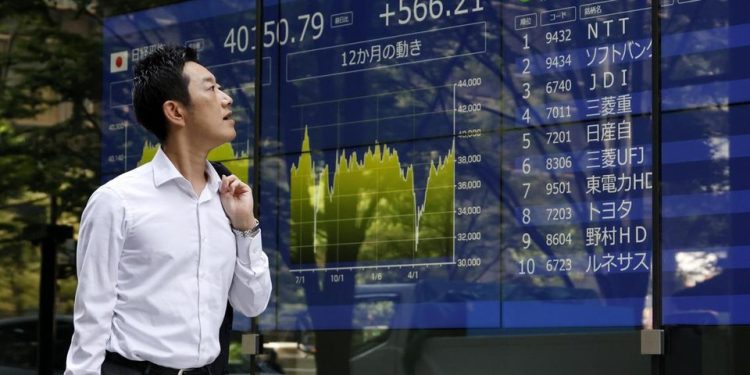Asian markets declined on Wednesday as traders scaled back expectations of aggressive interest rate cuts by the U.S. Federal Reserve, following fresh data showing inflationary pressures tied to tariffs are starting to reach consumers.
The MSCI Asia-Pacific index slipped 0.1%, reflecting broader caution across regional equities. However, technology shares in Hong Kong bucked the trend, climbing 0.6% on renewed optimism over chip exports to China.
One standout was Taiwan Semiconductor Manufacturing Co., which rose 1.8% in Taipei after reports emerged that it plans to construct a second chip facility in Japan — a move seen as a sign of sustained semiconductor demand in Asia.
In U.S. futures trading, contracts for the S&P 500 and Nasdaq 100 both edged down 0.1%, while Treasury yields steadied following a surge in 30-year yields above 5% in the previous session.
The Japanese yen weakened slightly, down 0.1%, hovering near its lowest levels since April. Meanwhile, gold prices edged higher as some investors sought safety amid rate uncertainty.
Markets are now pricing in fewer Fed rate cuts for 2025, with the likelihood of a cut in September seen as just over 50%. The shift follows signs that U.S. companies are beginning to pass tariff-related costs onto consumers, further complicating the Federal Reserve’s fight against inflation.
“Policymakers will likely need to hold rates steady for a bit longer to fully cool inflation,” said Federal Reserve Bank of Dallas President Lorie Logan, adding that a pivot to cutting rates may still be needed if inflation and labor markets soften.
With global supply chains under strain and economic data mixed, analysts say the Fed’s next steps will be crucial in shaping both global market sentiment and investment strategy in the second half of the year.















